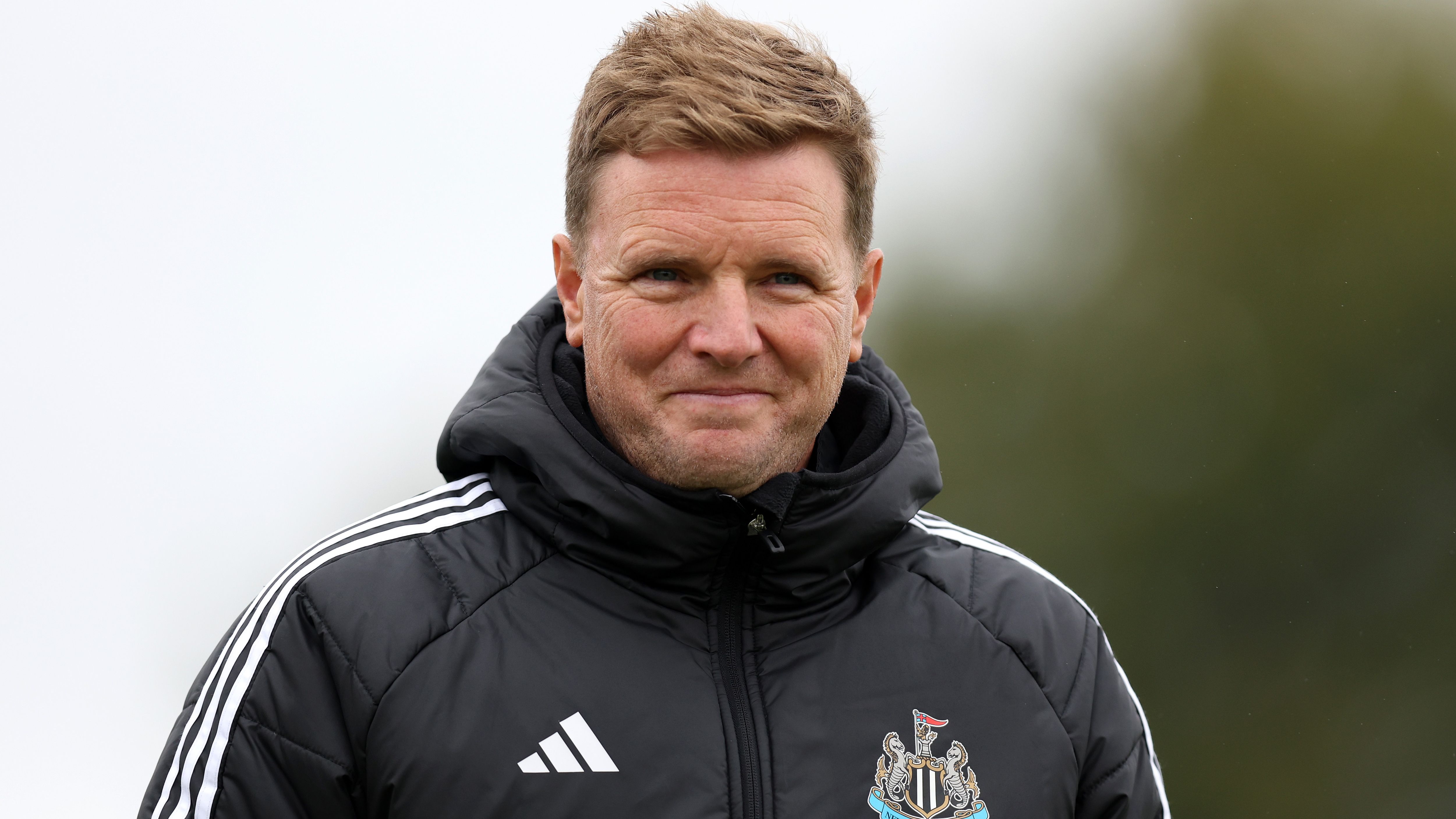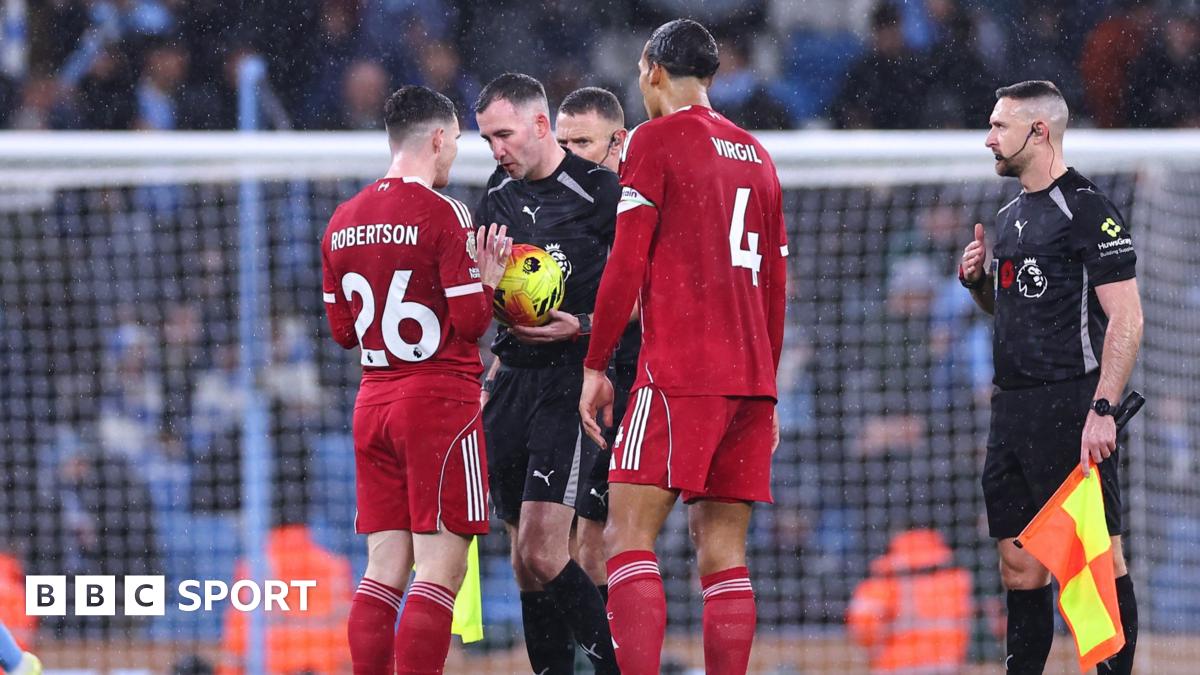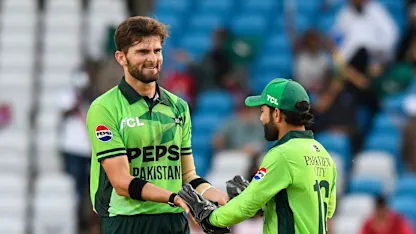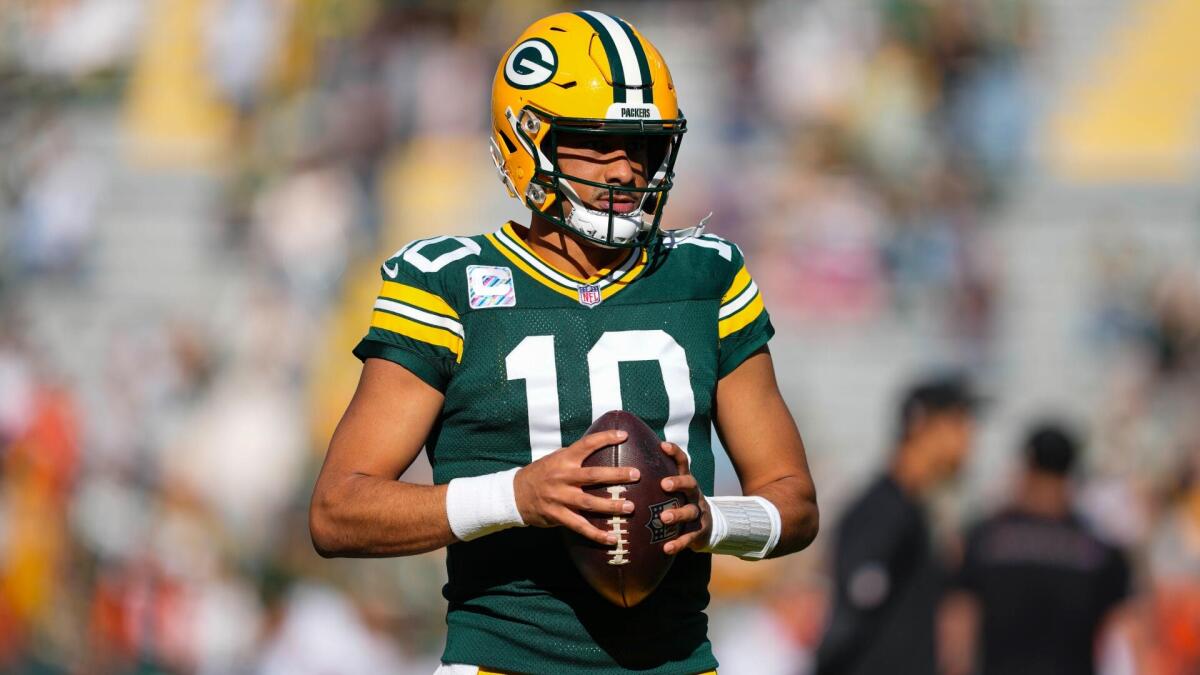Inside Ruben Amorim’s first year at Manchester United: Sharp words, hands-on coaching, and how players feel

November 11 marks a year since Ruben Amorim touched down in England and headed to Carrington for his first day as Manchester United head coach.It has been a tumultuous 12 months since, with several lows, some highs, and a recent glimmer of hope, but then again the atmosphere at the club he inherited was already turbulent.Take, for instance, one episode, not reported before, of the dressing room in the immediate aftermath of United’s 3-3 draw away to Porto in the Europa League last October 3, when Erik ten Hag was still in charge.Ten Hag was furious at a sloppy defensive display that saw United let a 2-0 lead slip, with defeat seeming inevitable, only for Harry Maguire to salvage a 3-3 draw by scoring in injury time. After the final whistle, concerned by United’s general form, Ten Hag let rip at his players in the bowels of the Estadio do Dragao, pressing home how they needed to change mentality and be disciplined on the pitch to find success. It was a long inquest.When he had finished, senior members of the team, including Bruno Fernandes, stood up and requested Ten Hag and his assistants leave the dressing room so the players could have a debrief themselves. This was not that unusual. A similar episode came after the 2-0 loss to Newcastle United in April 2023, with Lisandro Martinez also vocal then. United, who had slipped after lifting the Carabao Cup, went on to win the next three Premier League games on the way to qualifying for the Champions League by finishing third.In Porto, the mood was different, according to people familiar with what happened, who like others in this article were granted anonymity to speak freely. The coaching staff exited and the players discussed the situation. More than one took exception to the tone of Ten Hag’s criticism, among them Diogo Dalot, who stood up to make an impassioned speech using strong language. Dalot suggested to his team-mates they would have to summon performances, whatever some of them might feel about the manager.Teams have reached unprecedented glory amid creative friction, notably when Claudio Ranieri led Leicester City to the Premier League title in 2016, even while experiencing major tension with his players, but this episode in Portugal signposted the terminus of Ten Hag’s reign.United’s powerbrokers met at INEOS’ headquarters in Knightsbridge, London, five days after the Porto fixture, following Sir Jim Ratcliffe’s attendance at the 0-0 draw at Villa Park, and initiated the process of selecting a successor to Ten Hag.They waited to pull the trigger until October 28, the day after United lost 2-1 at West Ham, at which point chief executive Omar Berrada headed back to Portugal, this time to Lisbon, to conclude talks with Sporting CP’s president Frederico Varandas over the hire of Amorim.Anybody thinking Amorim would apply a lighter touch than Ten Hag was mistaken, however. The man who Cristiano Ronaldo once nicknamed The Poet can mix colourful imagery with brutal assessments. That much has been apparent in his press conferences, but behind closed doors, his honesty is sharper still.Manuel Ugarte played for Amorim at Sporting between 2021 and 2023, but he was not given special treatment during the end-of-season meeting at Carrington that followed United’s Europa League final loss to Tottenham Hotspur. This was the gathering, the day before United faced Aston Villa in the final Premier League game, where Amorim told Alejandro Garnacho he would need a good agent during the summer window due to him remaining as head coach. That conflict was what attracted the headlines when details emerged.Several players were on the receiving end, too, but Amorim had particularly pointed feedback for Ugarte, who he felt had let his work rate slide from their time together at Sporting. Amorim believed Ugarte had gotten comfortable and said he did not recognise him as the same player from their first stint together.Criticising a former player in front of his team-mates certainly caused a ripple of reaction among those in the squad. It also showed them that Amorim was hard, but broadly fair, when it came to assessing application.For those with longer memories, it called to mind how Sir Alex Ferguson would occasionally go after Ryan Giggs, who could withstand the invective, knowing that Nani, a less robust figure yet the real target, would also listen in and receive the message.Amorim’s preference for delivering strong feedback in group settings, rather than one-on-one, has been the cause of conversations among players. The subject came up on United’s post-season tour, as several took the chance to chew the fat on the rooftop of the W Hotel in Kuala Lumpur. Some players would like more tailored instructions. Amorim wants those on the fringes of selection to show him they deserve minutes in training sessions, rather than through face-to-face meetings.Fernandes is one player who does get solo time with Amorim, although this is often United’s captain going to his head coach. They have a two-way relationship, with Fernandes carrying on his role as de facto lieutenant of the squad, having first been given that responsibility by Ten Hag.Amorim does not join players on social activities, instead keeping a distance on purpose to maintain a sense of authority.Attempts to improve standards, in terms of professionalism and commitment, have been hallmarks of Amorim’s first year in charge, and he referenced as such in the all-staff meeting at Carrington that kicked off the new campaign. He cited players going out and being late for training as examples of bad discipline. Amorim’s consistent appearances at United’s company summits, together with his candour and passion, have been appreciated by employees.Work was done in the transfer market to effect change to this end, and bringing in Bryan Mbeumo and Matheus Cunha — two established Premier League players with a love for football — lifted the mood and the quality of sessions significantly.Amorim’s appointment of a six-man leadership group, featuring Fernandes, Maguire, Tom Heaton, Lisandro Martinez, Noussair Mazraoui and Dalot, was an effort to entrust the dressing room with disciplinary and other matters.At the heart of Amorim’s tenure has, of course, been his switch in formation to a back three. United hired him in full knowledge he would use a 3-4-2-1 system, but that recalibration is still being worked through at Carrington.Although Amorim would stand at a distance when the cameras rolled for 15-minute open sessions ahead of Europa League ties last season, he often manhandled his players into position when the real coaching got under way. He still does now.Shadow drills, when a team is lined up as if to play but there is no opposition, are a regular feature, with Amorim kicking the ball into certain areas and getting his players to move accordingly.He wants his team to rotate as one and know instinctively when and where to go, and he has physically shifted players one or two yards if not quite right. These types of sessions were tough to squeeze into a packed fixture schedule last season, but there are free midweeks this campaign and they have become more frequent.Typically, one day each week contains the work of a full match, to try to keep fitness levels up. A recovery day follows. It should help prepare the players for the physical rhythm of being in European competition next season, while at the same time enabling more control and less travelling than trips to the continent would allow.A frequent drill, as Amorim embeds his team shape, is defence versus attack, five-v-five, with one team trying to score into a full-sized goal and three smaller nets at the other end. Amorim will stop the practice if players are not in the correct positions.Still, some players have wondered whether the system suits the team. Jason Wilcox, who rose from technical director to director of football over the past year, after Dan Ashworth departed as sporting director, has held discussions with Amorim on the formation. Wilcox is known to like the 4-3-3 that brought Manchester City dominance. He has a strong relationship with Amorim and the pair speak daily. Wilcox watches training on the touchlines at Carrington.Amorim has said his system will evolve over time, when he is ready, and he has laid out his team in a 4-3-3 for parts of some sessions, but this is mainly to embed understanding for certain phases of play during matches. He has said not even the Pope could get him to deviate from his back-three starting point. He would doubtless feel that too much has been made of his tactical approach, and other factors, such as quality and energy, have at various times let down the performances.More recently, there have been moments when the attacking potential of Amorim’s “idea”, as it is often referred to, has been displayed, most potently with Mbeumo and Amad linking down the right. It would be hard to get them both in the team otherwise.There is a theory from some people close to the club that, as well as Amorim feeling the 3-4-2-1 is the strategy that will transport United back to the biggest silverware, he could not have changed before now because if he had and results picked up, it would have suggested the formation was the problem all along.Other people sense Amorim’s assistants might have done better to translate his vision to the players. Carlos Fernandes, Adelio Candido and Emanuel Ferro all came with Amorim from Sporting, where they won two Portuguese titles after a 19-year drought for the club. Fernandes is 30 and Candido, who started out as an analyst, is 29, and though they have coaching credentials, their youth has been raised as a hurdle to knowing the nuances of getting buy-in from players. Similar was, though, said of Kieran McKenna as a United coach before he led Ipswich Town to promotion to the Premier League. Fernandes, who leads sessions and drills set pieces, is regarded by executives as talented.People familiar with Amorim’s thinking feel he believes his staff communicate very well and there is a good distribution of responsibilities between them. He sees them as a huge part of his success as a coach, which is why he included them in the photograph of him winning Premier League manager of the month for October.Amorim appeared to be alluding to the training ground dynamic when he said in the aftermath of losing to League Two Grimsby Town in the Carabao Cup that the players “spoke really loud”. He added: “If we don’t show up, you can feel that something has to change and you are not going to change 22 players again.”Bringing attention to his position followed on from him contemplating a departure when results spiralled last season, as he acknowledged during an interview in Chicago while on United’s pre-season tour.Amorim has been more consistent this season about staying long-term, and those who know him believe that after the Grimsby loss, he might have been trying to say he had nothing to offer to the media because his team had said it all. Taking their opponents for granted was an accusation that could be levelled at United that night.The 3-0 loss to City compounded the mood, but beating Chelsea on September meant the hierarchy had something to grasp when seeing Ferguson for the first football board meeting of the INEOS era. Held at Old Trafford on the Thursday following the win over Enzo Maresca’s side, Berrada, Wilcox, and chief financial officer Roger Bell presented to Ferguson, David Gill and Michael Edelson in their capacity as non-executive directors. A surprise attendee was Amorim himself, in a sign of the backing from above and his desire to communicate with key figures from United’s history.United’s football board is a ceremonial construct these days — the big decisions are taken at plc level — but keeping Ferguson and Gill updated is considered internally as a shrewd move. Support for Amorim from those in charge was clear, even as United reeled from the defeats at Blundell Park and the Etihad, with Berrada and Wilcox highlighting underlying data that showed reasons to be optimistic.Two days later, Brentford arrived like a sledgehammer, but the wins over Sunderland, Liverpool, and Brighton breathed the first bit of momentum into Amorim’s reign, while the draws at Nottingham Forest and Tottenham Hotspur point at promise, but also problems still to resolve.It can be revealed that broadcasters TNT were going to tap into the fascination around United’s form by inviting Frank Ilett, the man behind the United Strand social media account, to be part of their coverage for the Spurs game. Since last year, he has been growing his hair, and gaining a following, vowing only to cut it once United win five games in a row.This time 12 months ago, Amorim arrived with United 14th in the table, on 11 points from nine games and a goal difference of -3. Now, they sit seventh with 18 points from 11 games and a goal difference of +1.In between, Amorim certainly brought headlines. There has been Marcus Rashford’s exile, a damaged dressing-room television, the forcing out of Rasmus Hojlund, a 15th-place finish for the “worst team in history”, and a thousand-yard stare in Bilbao.Although they have ceded the running of the club to Ratcliffe, the Glazer family, United’s majority owners, are involved at the top level, with monthly executive committee meetings a way for Joel and Avram, the two most engaged siblings, to get updates. Their lesser-spotted brother Bryan was at Anfield, sitting close by Ferguson and Sir Kenny Dalglish, for United’s recent win.Meanwhile, Ed, another of the siblings, gave a rare insight into their thinking during a talk at the Kogod School of Business six months ago. He was asked about the sacking of Ten Hag and the appointment of Amorim.“It starts with winning and losing,” he said. “You have to say to yourself, ‘Are we on the right track? Do we feel like what we’re currently doing is working?’.“It’s not any different from you as a fan. I always say, if you want to know the best players, ask the fans. They’re in the seats every week and they know the positives and negatives of every single player. I have to imagine there are times you’ve sat there and thought, ‘This isn’t working, we gotta make a change’. Sometimes you make a change and it doesn’t work, sometimes you make a change and it does.“But you also have to be patient; it doesn’t happen overnight. It doesn’t matter how much money you spend, it’s about identifying talent and having patience. Sometimes you can be patient and it still doesn’t work.“In Manchester, I think we’re in that mode where we’ve turned the page recently, and now we have to be a little patient and give everybody the opportunity to put together their vision of what success is going to be. The next couple of years are going to be very telling. We hope to be back where we should be.”Despite his occasional soul-bearing statements, Amorim does understand the responsibility that comes with being the face of the club. He laid down a rule that half his squad must sign autographs for fans outside Old Trafford before the game, and half after, as too many had come to ignore them. As it has happened, most players do it upon entering the stadium.Amorim himself has stayed late after final whistles to pose for pictures, and he carries his charm into other encounters on club business. He recently eased a four-year-old girl's nerves on her visit to Carrington by starting small talk and handing her a shirt to hold in front of the cameras.Forming a bomb squad of five players in Rashford, Garnacho, Antony, Jadon Sancho and Tyrell Malacia was a ruthless move, but when the transfer window closed, he did canvass opinions on Malacia, the only one who stayed. Players spoke in favour of Malacia’s reintegration to first-team training, and Amorim heeded that feedback, with the Dutchman even making the bench against Brighton.United’s injury record is much improved, and while that can be attributable to one game per week, as Amorim has accepted, his refusal to select players at risk is a factor. Despite initially not wanting to come to United mid-season, Amorim learned valuable details about the club and his squad in that time.United’s general direction is upwards, as this graph detailing the team’s expected goals for and against over time shows. There is still work to do to reach the highs of Ten Hag’s tenure in his first season, but the blue of a positive difference has been more obvious after long periods of the red negative, which brought about a change in manager.Qualifying for Europe is the priority, and is essential, really, in a campaign where all focus is on the Premier League. The condensed nature of the division suggests a Champions League place is possible should United really click.Whatever the final outcome, after being in the news for various reasons, including the departure of Ashworth, a second round of redundancies, fan protests, the launch of a new stadium, and Ratcliffe landing his helicopter at Carrington for meetings, United would doubtless welcome a smoother, more successful 12 months ahead.Additional reporting: Adam Crafton and Mark Critchley













